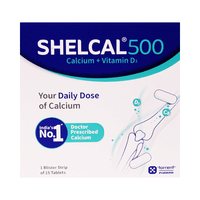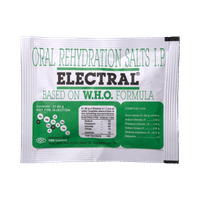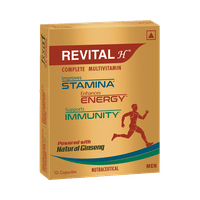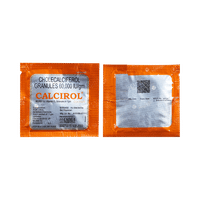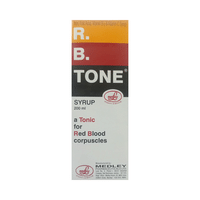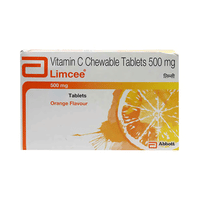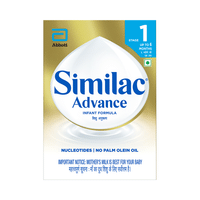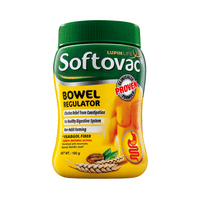Composition FOR LV Cet Plus
Levocetirizine(0.5mg/5ml),Ambroxol(15mg/5ml),Guaifenesin(50mg/5ml),Phenylephrine(5mg/5ml)food interaction for LV Cet Plus
alcohol interaction for LV Cet Plus
pregnancy interaction for LV Cet Plus
lactation interaction for LV Cet Plus
food
alcohol
pregnancy
lactation
LV Cet Plus Syrup may be taken with or without food, but it is better to take it at a fixed time.
None
None
CAUTION
Caution is advised when consuming alcohol with LV Cet Plus Syrup. Please consult your doctor.
CAUTION
LV Cet Plus Syrup may be unsafe to use during pregnancy. Although there are limited studies in humans, animal studies have shown harmful effects on the developing baby. Your doctor will weigh the benefits and any potential risks before prescribing it to you. Please consult your doctor.
CONSULT YOUR DOCTOR
LV Cet Plus Syrup is probably unsafe to use during breastfeeding. Limited human data suggests that the drug may pass into the breastmilk and harm the baby.
CONSULT YOUR DOCTOR
SALT INFORMATION FOR LV Cet Plus
Levocetirizine(0.5mg/5ml)
Uses
Levocetirizine is used in the treatment of allergic eye disease, nasal allergy symptoms, allergic conditions, sneezing and runny nose due to allergies and allergic skin conditions.
How it works
Levocetirizine is an antihistaminic medication. It treats allergy symptoms such as itching, swelling, and rashes by blocking the effects of a chemical messenger (histamine) in the body.
Common side effects
Sleepiness, Fatigue, Dryness in mouth, Headache, Vomiting, Abdominal pain, Nasopharyngitis (inflammation of the throat and nasal passages), Weakness, Hypersensitivity, Increased appetite, Vertigo, Convulsion
Ambroxol(15mg/5ml)
Uses
Ambroxol is used in the treatment of Respiratory tract disorders associated with viscid mucus.
How it works
Ambroxol is a mucolytic medication. It thins and loosens mucus (phlegm) in the nose, windpipe and lungs making it easier to cough out.
Common side effects
Nausea, Vomiting, Upset stomach
Guaifenesin(50mg/5ml)
Uses
Guaifenesin is used in the treatment of cough with mucus.
How it works
Guaifenesin works by decreasing the stickiness of mucus (phlegm) and helps in its removal from the airways.
Common side effects
Nausea, Vomiting, Dizziness, Headache, Rash
Phenylephrine(5mg/5ml)
Uses
Phenylephrine is used in nasal congestion, common cold, uveitis, pupil dilation, conjunctivitis and eye Irritation.
How it works
Phenylephrine is a decongestant. It works by narrowing the small blood vessels which provides temporary relief from inflammation (redness and swelling) and discomfort.
Common side effects
Nausea, Vomiting, Headache, High blood pressure, Arrhythmia (irregular heartbeats), Blurred vision, Breathlessness, Itching, Restlessness, Reflex bradycardia, Excitation, Epigastric pain, Neck pain, Tremors, Hypertensive crisis, Eye pain, Stinging in the eyes, Photophobia, Conjunctival sensitivity, Preterm and low birth weight infants, Fainting, Myocardial infarction, Subarachnoid hemorrhage
SUBSTITUTES FOR LV Cet Plus
5 Substitutes
5 Substitutes
Sorted By
 Rs. 78pay 4% more per ml of Syrup
Rs. 78pay 4% more per ml of Syrup Rs. 65save 14% more per ml of Syrup
Rs. 65save 14% more per ml of Syrup Rs. 66save 12% more per ml of Syrup
Rs. 66save 12% more per ml of Syrup Rs. 78pay 4% more per ml of Syrup
Rs. 78pay 4% more per ml of Syrup Rs. 45same price
Rs. 45same price
Expert advice FOR LV Cet Plus
- Your doctor has prescribed Levocetirizine to help relieve allergy symptoms such as itching, swelling, and rashes.
- As compared to other similar medications, it is much less likely to make you feel sleepy.
- Be cautious while driving or doing anything that requires concentration as it can cause dizziness and sleepiness.
- Do not drink alcohol while taking this medication as it may cause increased sleepiness.
- Stop taking Levocetirizine at least three days before taking an allergy test as it can affect the test results.
- Your doctor has prescribed Levocetirizine to help relieve allergy symptoms such as itching, swelling and rashes.
- As compared to other similar medications, it is much less likely to make you feel sleepy.
- Be cautious while driving or doing anything that requires concentration as it can cause dizziness and sleepiness.
- Do not drink alcohol while taking this medication as it may cause increased sleepiness.
- Stop taking Levocetirizine at least 3 days before taking an allergy test as it can affect the test results.
Frequently asked questions FOR LV Cet Plus
Levocetirizine
Q. Is Levocetirizine a steroid? What is it used for?
No, Levocetirizine is not a steroid. It is an anti-allergic medication which is used to relieve the symptoms of allergy. It relieves runny nose, sneezing and redness, itching and watering of the eyes caused by hay fever or seasonal allergies. It also relieves similar symptoms caused due to allergies to substances, such as dust mites, animal dander and mold. Additionally, it is helpful in treating symptoms of hives, including itching and rash.
Q. Does Levocetirizine make you tired and drowsy?
Yes, Levocetirizine can make you feel tired, sleepy and weak. If you have these symptoms, avoid driving or operating heavy machinery. Consult your doctor if not sure.
Q. How long does it take for Levocetirizine to work?
Levocetirizine starts working and showing improvement within an hour of taking it. However, it may take a little longer to notice the full benefits.
Ambroxol
Q. Is Ambroxol good for dry cough?
No. Ambroxol is more effective in the treatment of productive cough associated with thickened mucus and poor mucus clearance
Q. Does Ambroxol make you sleepy?
No, Ambroxol is not known to make you sleepy.
Guaifenesin
Q. What is Guaifenesin used for?
Guaifenesin is an expectorant, mainly used to relieve chest congestion by aiding the removal of mucus.
Q. How long can I take Guaifenesin?
Consult your doctor for use more than 7 days.
Q. Can I take Guaifenesin if I have high blood pressure?
Guaifenesin should not be taken by individuals with high blood pressure.
Phenylephrine
Q. Is it safe to use Phenylephrine?
Yes, Phenylephrine is safe for most of the patients. However, in some patients, it may cause side effects like nausea, vomiting, headache, fatigue, dizziness, dryness in the mouth, sleepiness and allergic reaction. If you experience any persistent problem while taking this medication, inform your doctor as soon as possible.
Q. Can the use of Phenylephrine cause dizziness?
Yes, the use of Phenylephrine can cause dizziness (feeling faint, weak, unsteady or lightheaded) in some patients. If you feel dizzy or lightheaded, it is better to rest for sometime and resume once you feel better. Do not drive or use any machines. Consult your doctor if the side effect persist or worsen.
Q. Can the use of Phenylephrine cause nausea and vomiting?
Yes, the use of Phenylephrine can cause nausea and vomiting. To avoid nausea one can take Phenylephrine with milk, food or with antacids. If vomiting occurs, drink plenty of water or other fluids. Talk to your doctor if vomiting persists. You should let your doctor know if you are unable to drink water and there are signs of dehydration, like dark colored and strong-smelling urine and a low frequency of urination. Avoid taking fatty or fried foods along with this medication. Do not take any other medicine without consulting your doctor.













